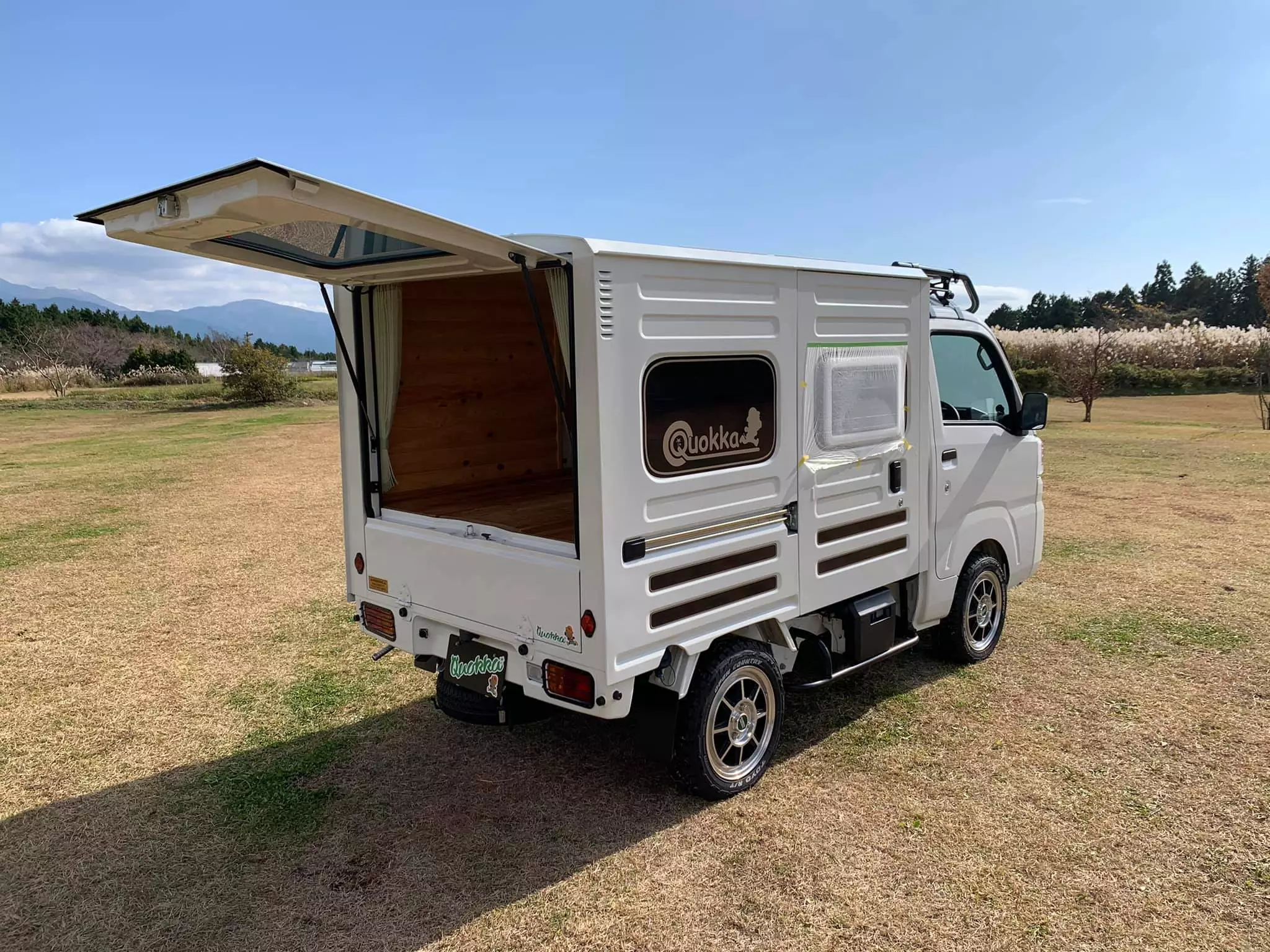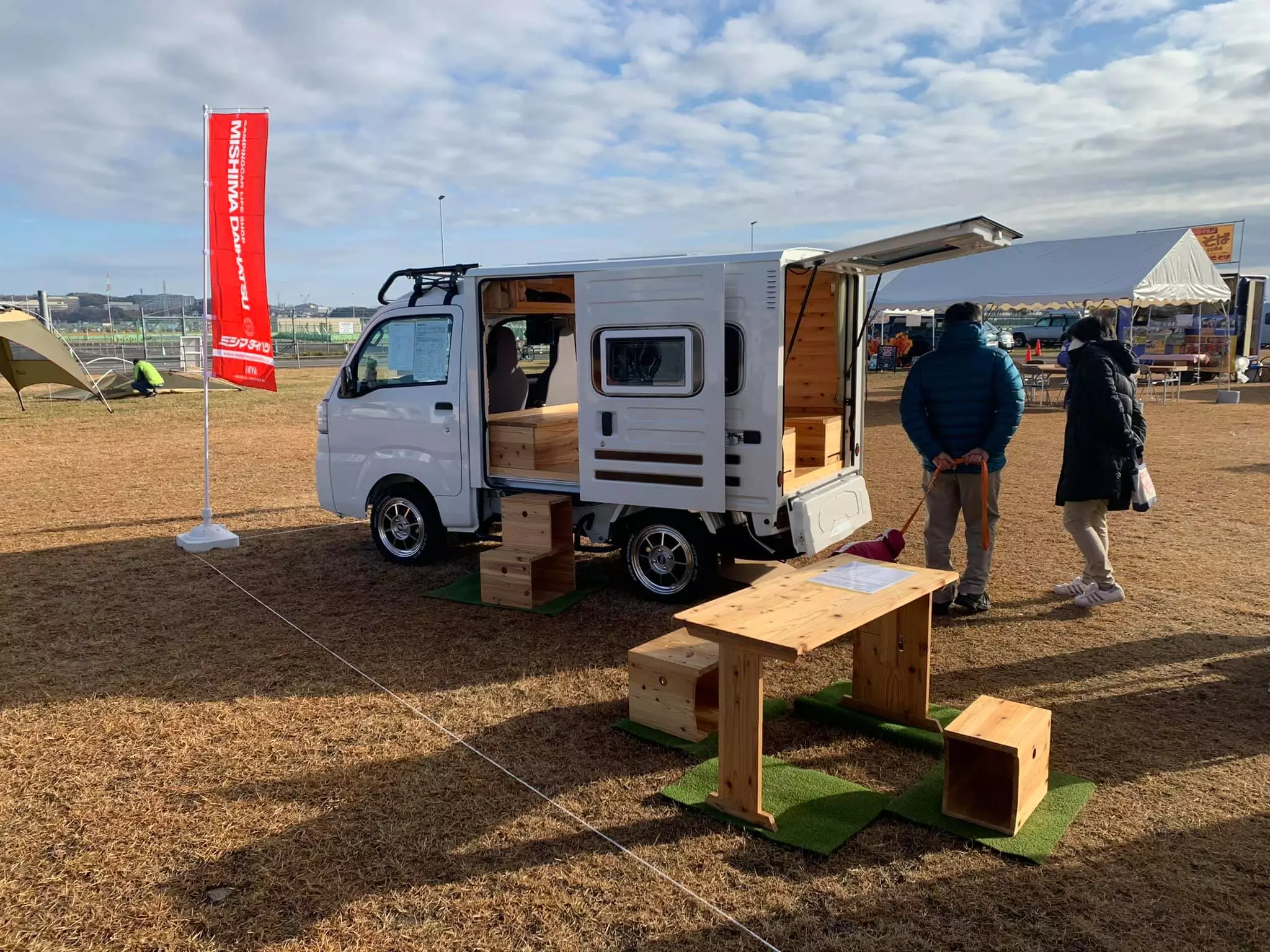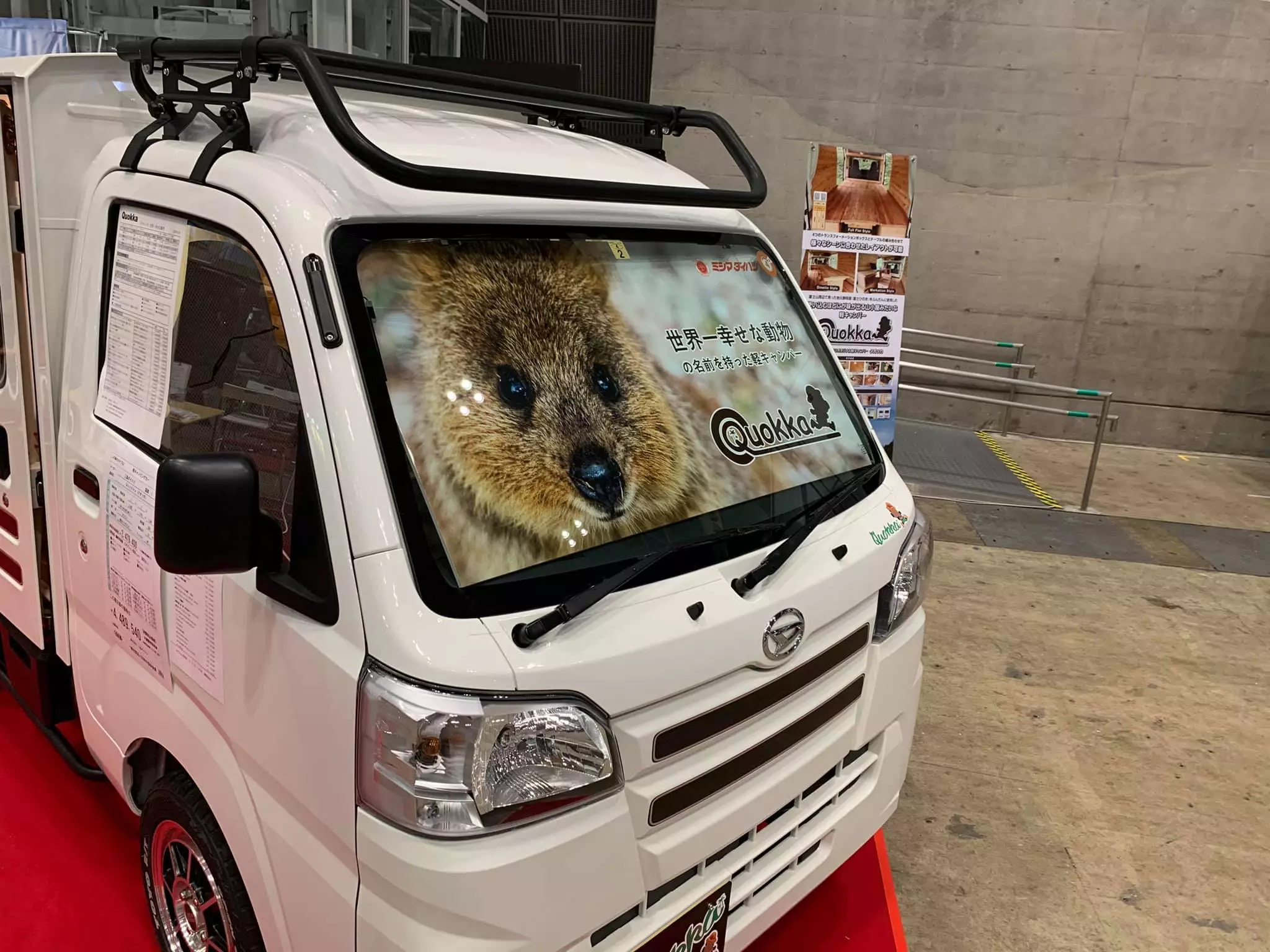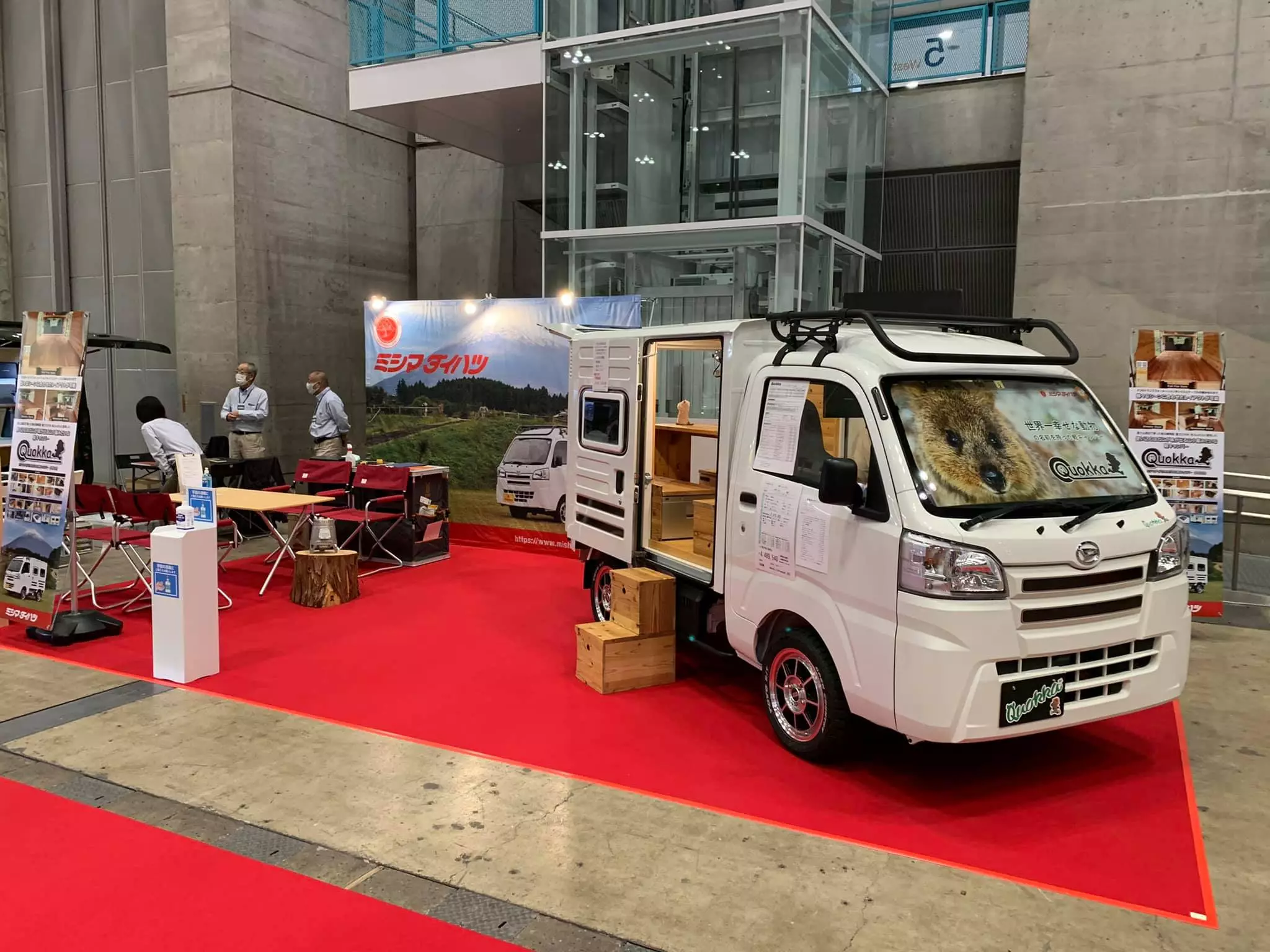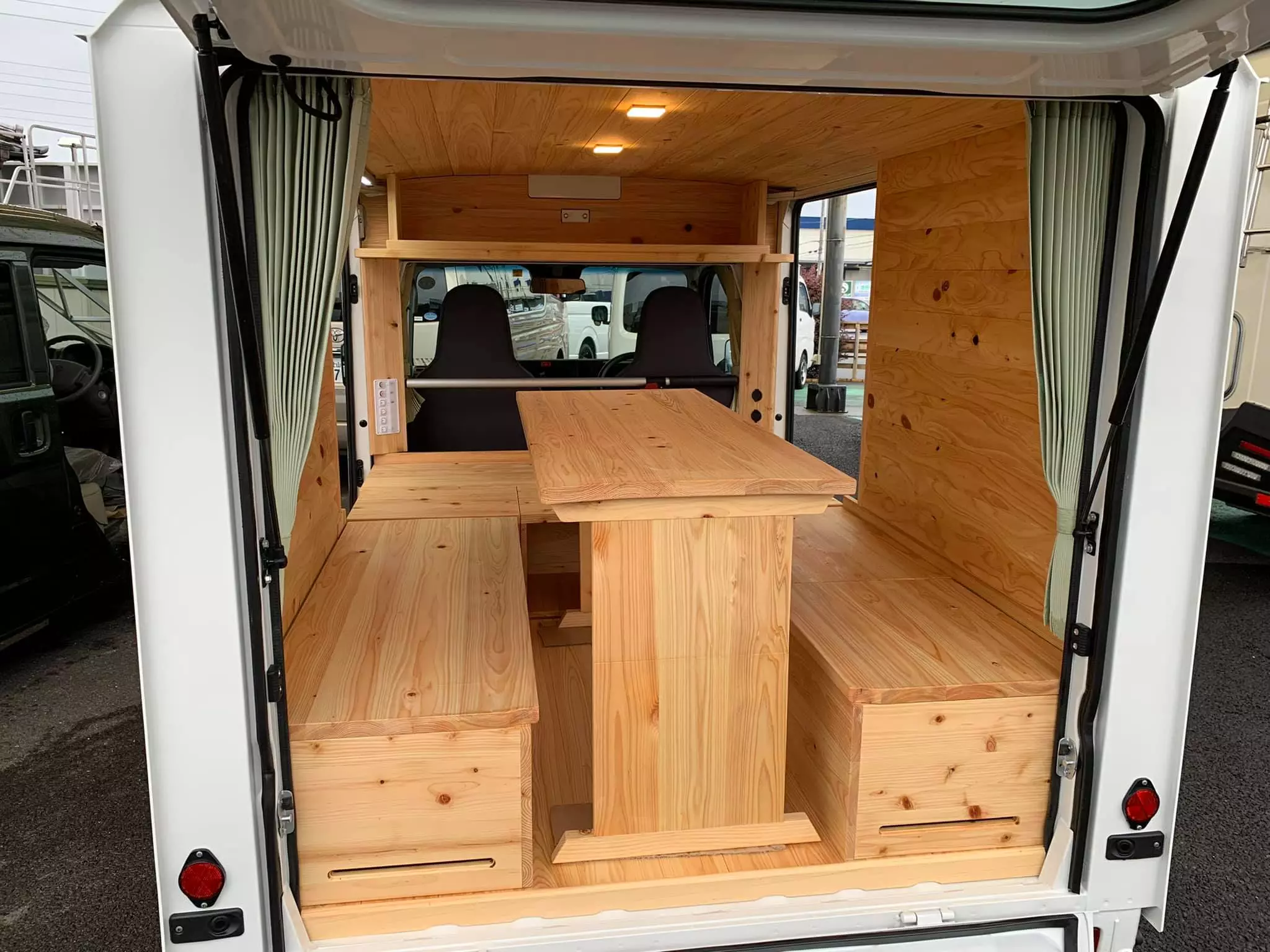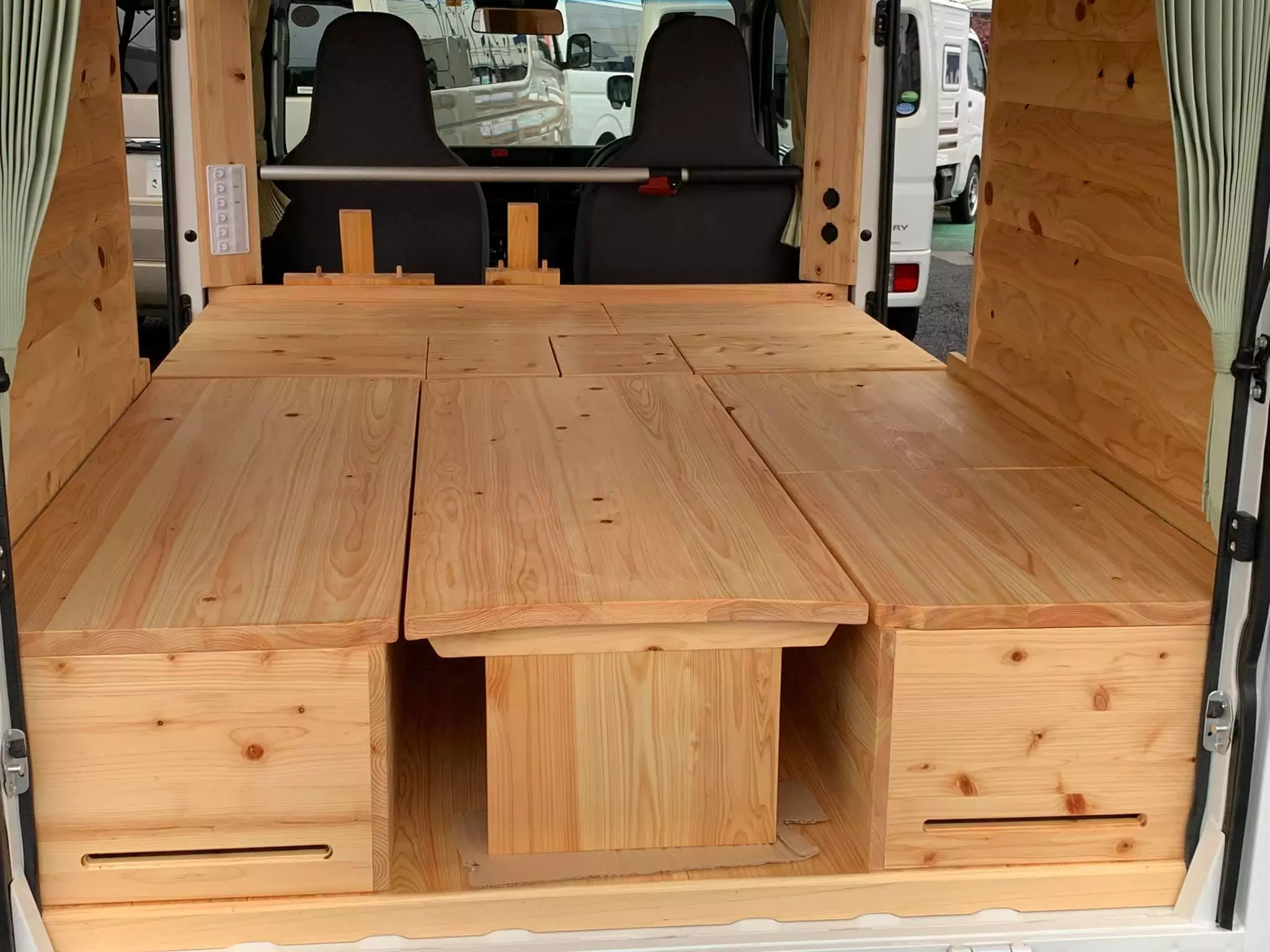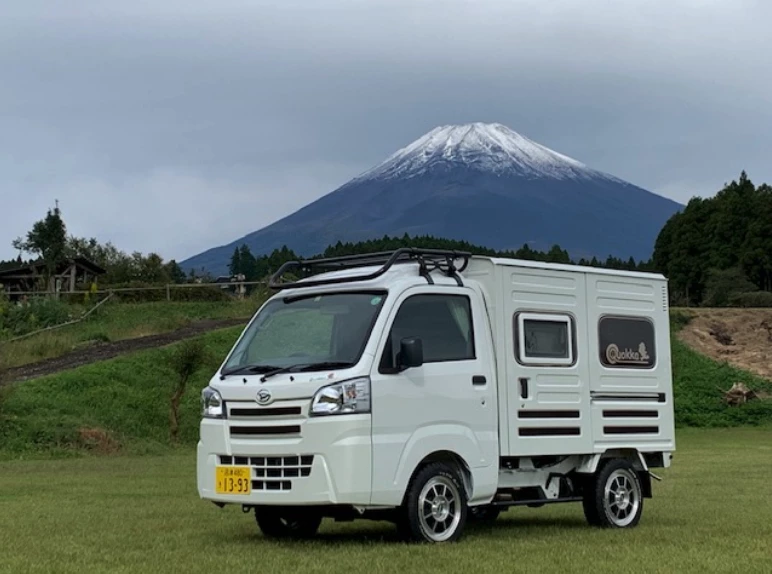Quite different from the average camper van, even among the quirky camping cars of Japan, the Quokka camper from car dealership Mishima Daihatsu is a basic white delivery micro-van outside, a transformable log cabin inside. Something of a refreshing spa room on wheels, the tiny RV surrounds campers in aromatic Japanese cypress wood long used for the likes of temples and hot springs resorts. The modular interior includes an indoor/outdoor dining table that drops into a full-length bed.
The Quokka is as adorable as its namesake, a small, elusive Australian marsupial known best for a permanent "smile" that looks photoshopped on. Mishima Daihatsu chose the friendly, house cat-sized wallaby, often thought of as the world's happiest animal, as the perfect mascot for its smile-inspiring, pint-sized micro-RV.

Based on the Daihatsu Hijet truck panel van, a tiny commercial kei truck, the Quokka measures just under 340 cm (134 in) long, putting it among the most compact, little four-wheeled camper cars we've ever covered. Its box-on-chassis cabin works the most out of that short size, adding elbow room by virtue of tall, vertical walls. The camper stands 194 cm (76 in) high and stretches 148 cm (58 in) in width.
Mishima adds in several optional RV-style windows, but the Quokka still looks quite industrial from the outside, like it's ready to drop fruit at the market or deliver supplies to an office park. Mishima has really flipped on the switch of leisure and outdoor recreation by crafting the interior completely out of hinoki (cypress) wood sourced from the base of Mt. Fuji, Japan's highest mountain, located partly in the same Shizuoka Prefecture as Mishima. Not only does this wood deliver a deep, fragrant scent, but it's also prized for its durability and antibacterial properties.
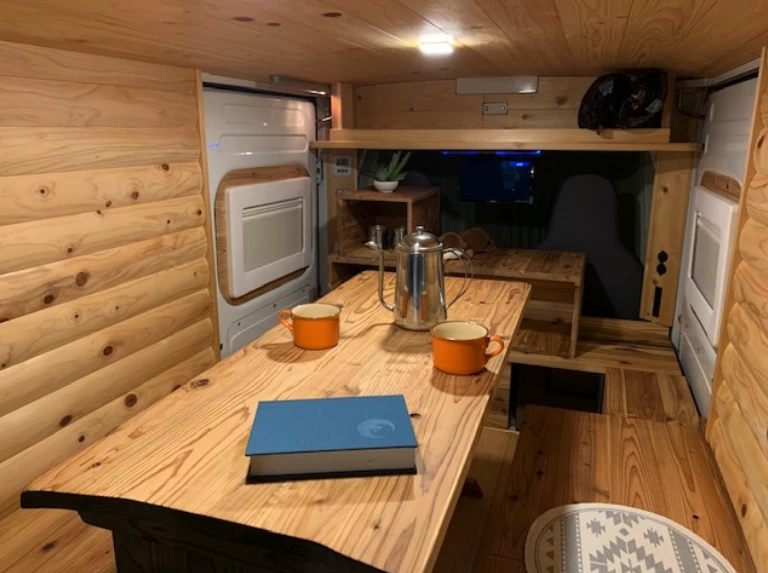
In sawing and carving that hinoki wood, Mishima has created a functional floor plan that sets the Quokka interior apart. Rather than basic panels, it covers the walls in more of a half-log-style design that adds dimension and character. The furniture, meanwhile, shows a unique spin on the rear dinette setup, the two benches running lengthwise on the sides of a high, central wood table. The bench tops flip open to access storage cubbies below.

At night, the table drops down to bench level and works with four removable wood crates to fill out a bed platform stretching straight up to the front cab seats. That platform lays out a 183 x 129-cm (72 x 51-in) sleeping space for the two onboard occupants.
When not in use as part of the bed, the crates can stack into shelves inside the van, work as outdoor benches or steps, or serve as storage boxes for holding and carrying gear. The table can be removed from the van and find use as an outdoor table, with two of the crates serving as seats.

The Quokka includes an electrical system with 100-Ah battery and DC and USB outlets. Buyers can stop there and keep it simple, or select from a list of options that includes electrical upgrades like a 200-Ah lithium battery, solar charging and an inverter; heating and air conditioning; and a full van's worth of window shades. We especially like the small microwave and refrigerator drawer that mount on the floor below the wooden bed platform, shoehorning some food prep capabilities into the tiny camper.
Mishima Daihatsu showed the Quokka at last weekend's 2022 Japan Camping Car Show and offers it for prices starting at ¥2,579,500 (approx. US$22,300) for a two-wheel drive with five-speed manual. Four-wheel-drive variants start at ¥2,737,900 (US$23,675), and all-terrain tires are available optionally. Both prices include tax.
Source: Mishima Daihatsu (Japanese)

